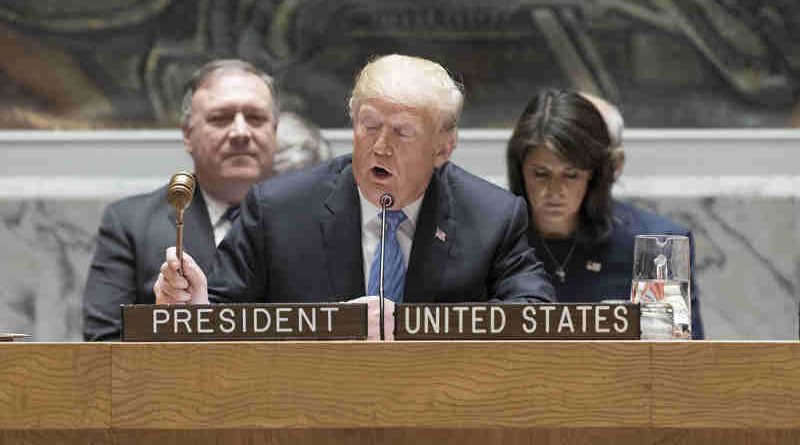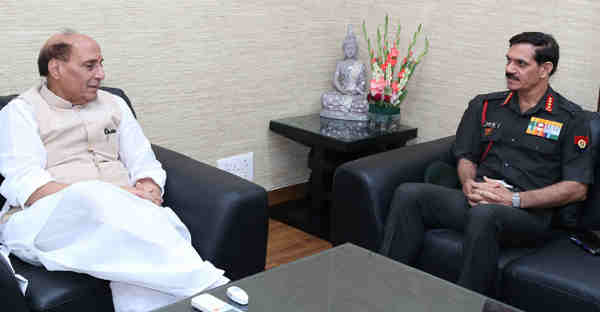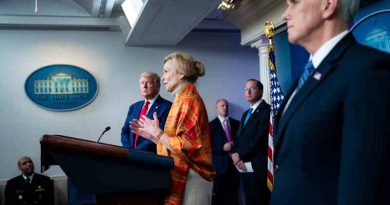Trump Plans to Impose Tougher Sanctions on Iran

President Donald Trump told the United Nations Security Council on Wednesday that the United States would impose sanctions on Iran that would be “tougher than ever before” in the coming months.
Trump’s statement comes after United States’ unilateral withdrawal earlier this year from the deal brokered to restrict Iran’s nuclear program, known as the Joint Comprehensive Plan of Action (JCPOA).
According to a UN report, Trump chaired the summit-level meeting of the 15-member Council, initiated by the US, to discuss ways that the body overseeing global peace and security can better enforce resolutions concerning the non-proliferation of weapons of mass destruction.
Top of the President’s concerns after laying out the “urgent importance” of countering nuclear, biological and chemical weapons use everywhere, was the JCPOA, commonly known as the Iran nuclear deal.
The JCPOA – reached by Iran, China, France, Germany, Russia, the United Kingdom, the US and the European Union – sets out rigorous mechanisms for monitoring restrictions placed on Iran’s nuclear program, while paving the way for the lifting of UN sanctions against the country.
“This horrible, one-sided deal allowed Iran to continue its path towards a bomb,” Trump said. From November, he said, US sanctions would be in “full force” and the White House would impose further measures. Anyone failing to comply with the US “would face severe consequences,” he warned.
President Trump also said that the US had “found that China has been attempting to interfere in our upcoming 2018 election…They do not want me, or us to win, because I am the first President ever to challenge China on trade,” he asserted, without offering further clarification.
However, in his remarks, Chinese Foreign Minister Wang Yi denied any involvement, asserting that “China has all along followed the principle of non-interference in other countries domestic affairs. This is a tradition of Chinese foreign policy.”
He added that China “refused to accept any unwarranted accusations.” He also described the JCPOA as a “hard-won achievement of multilateralism,” and a “viable agreement” that Iran was honoring.
Courtesy: UN




